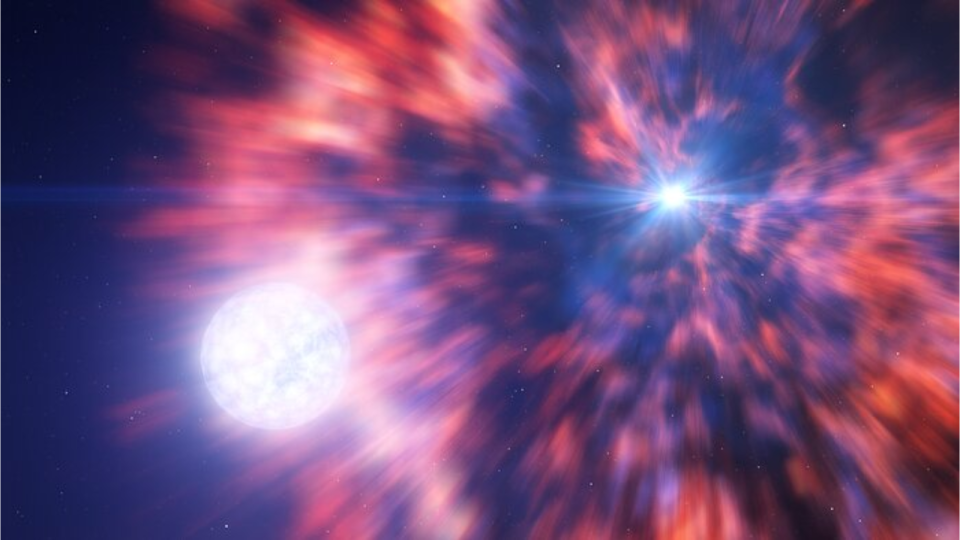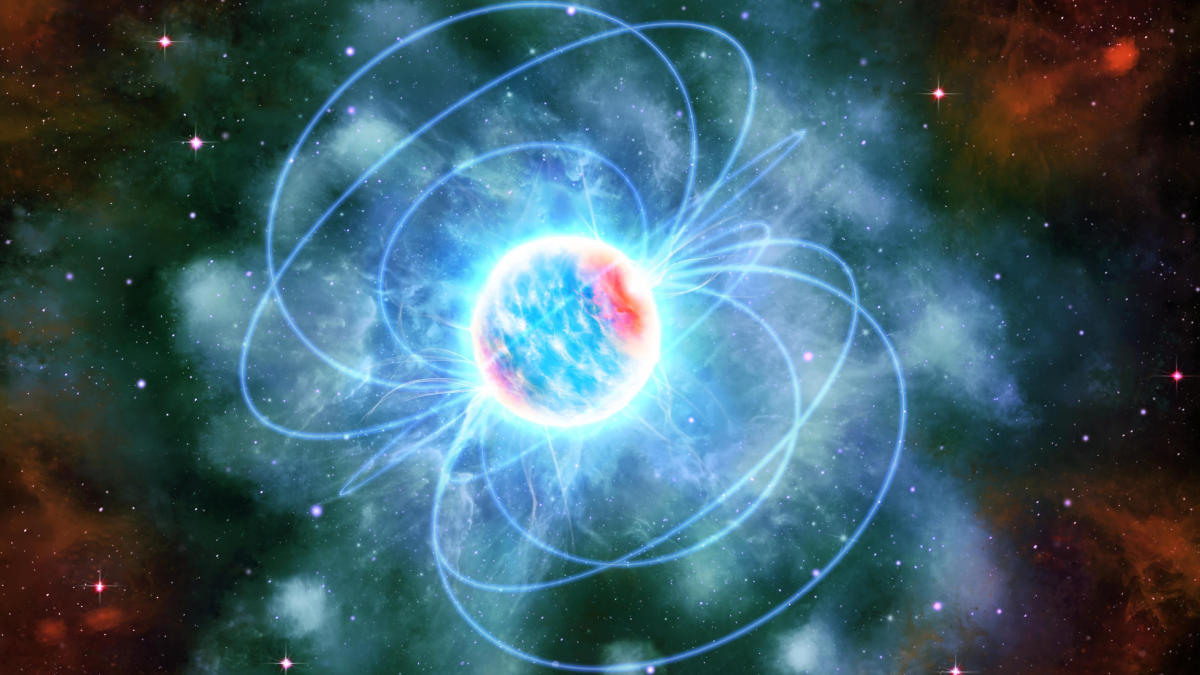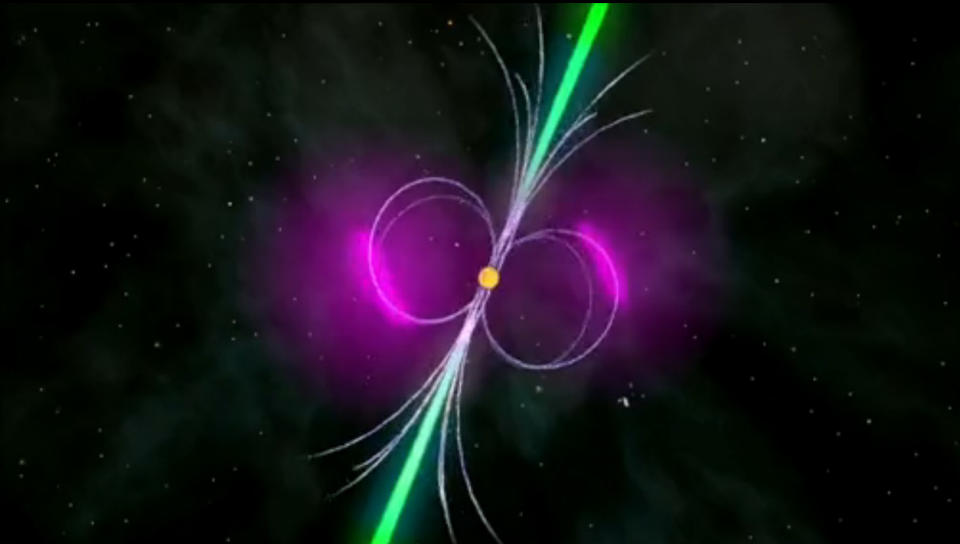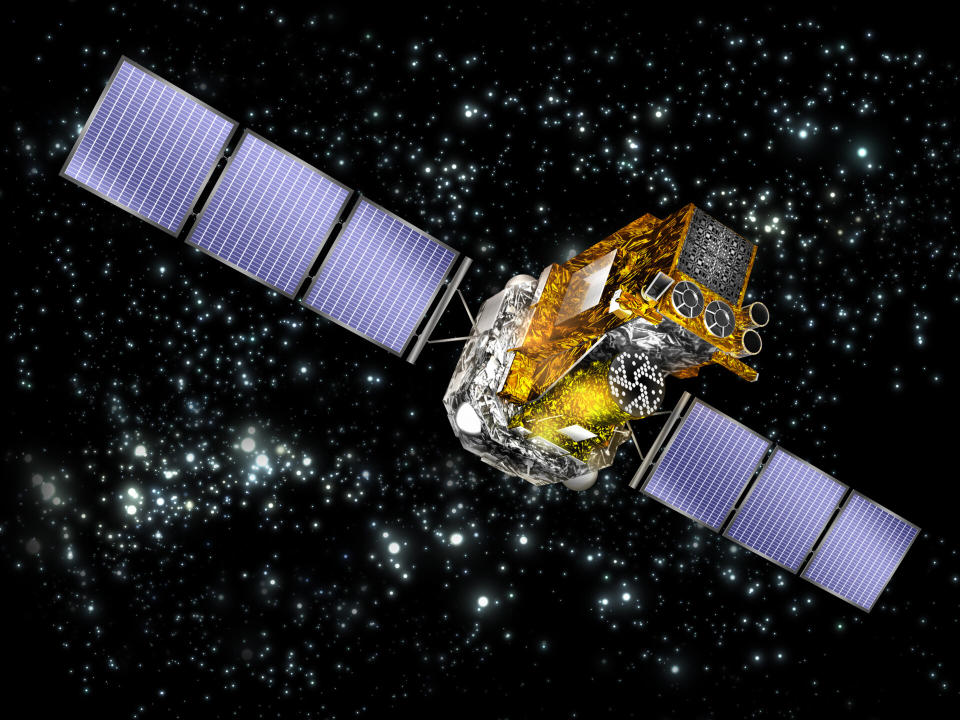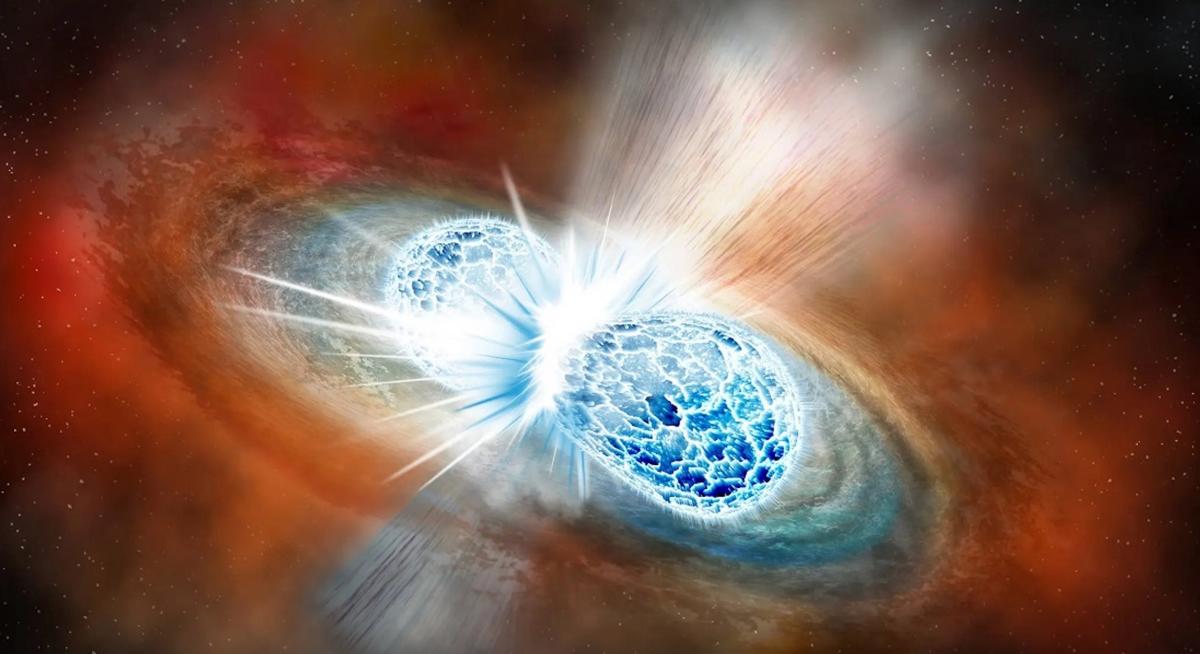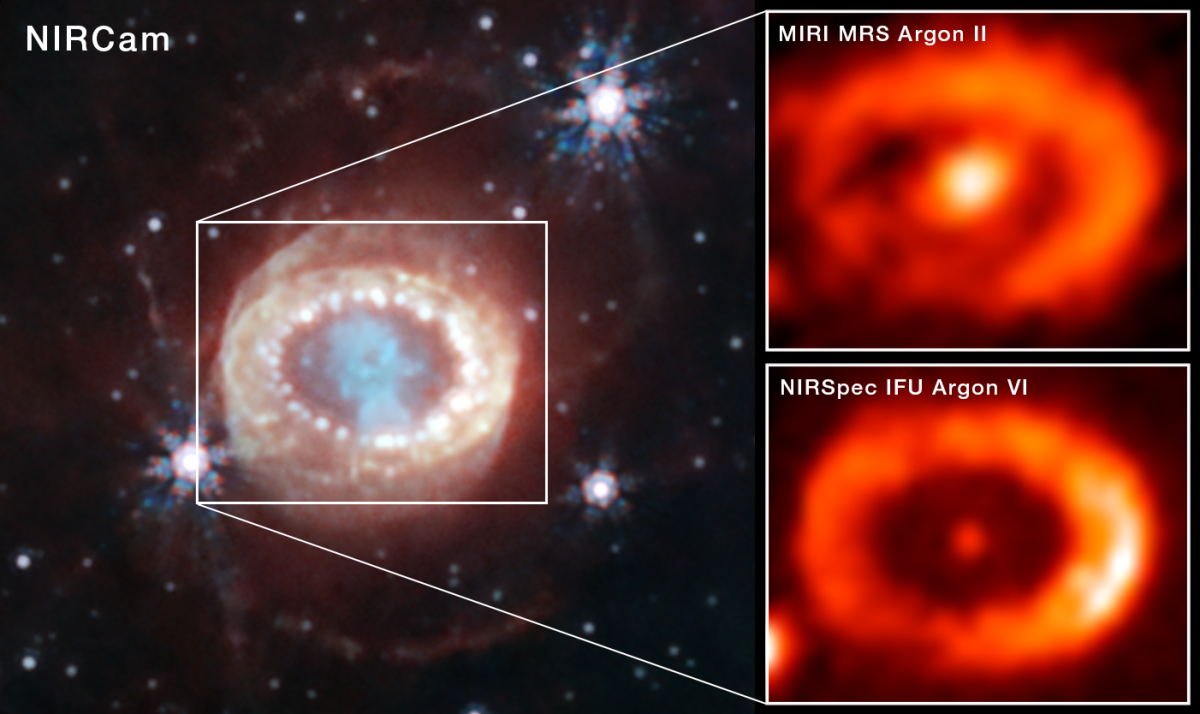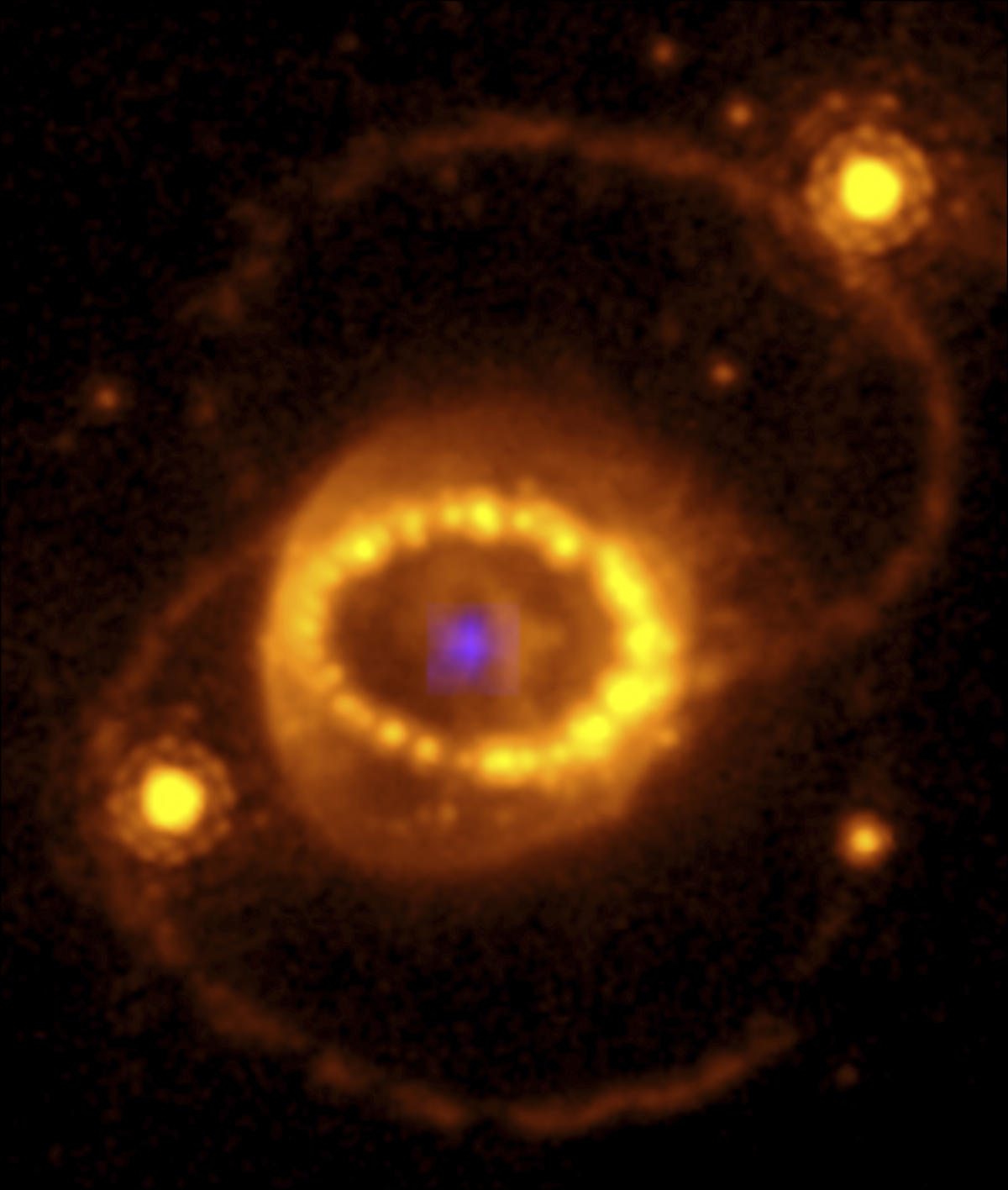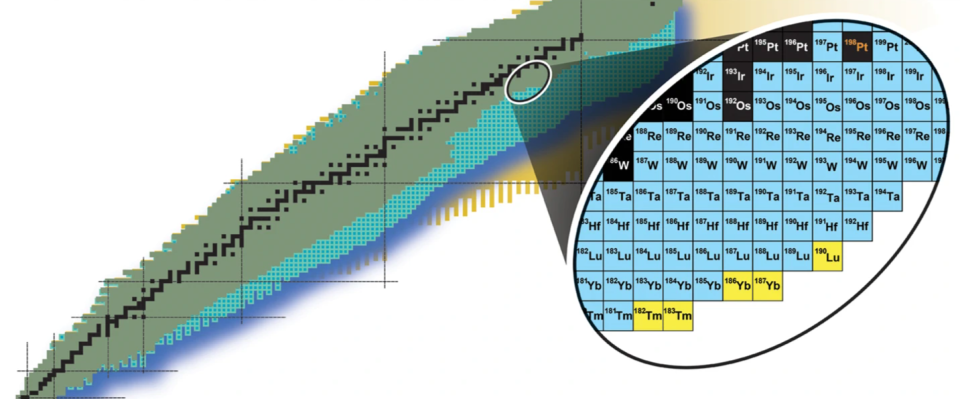When it comes to “busting” cosmic ghosts, only the most extreme objects in the universe may be up to the task: neutron stars. Scientists have performed simulations of collisions between these ultradense and dead stars, showing that such powerful events may be able to briefly “trap” neutrinos, otherwise known as “ghost particles.” The discovery could […]
Tag: neutron
How neutron stars ‘playing it cool’ could unlock exotic physics
Scientists have found that three neutron stars, born in the fires of other exploding stars, have cooled off surprisingly quickly, bringing us closer to understanding the exotic nature of matter within the cores of these extreme objects. The discovery was made by a Spanish team led by Alessio Marino of the Institute of Space Sciences […]
Scientists find slowest spinning ‘radio neutron star’ — it breaks all the dead-star rules
Astronomers have discovered the slowest spinning radio wave-blasting neutron star ever seen; it takes almost an hour to complete a full rotation. That may sound rather fast, but these dead stars are known to spin so rapidly that some experience 700 full turns every second. Even the most leisurely of the about 3,000 radio-emitting neutron […]
Gravitational waves reveal 1st-of-its-kind merger between neutron star and mystery object
Astronomers announced on April 5 that they may have detected a collision between a neutron star and a lightweight mystery object — an object larger than the largest known neutron star, but smaller than the smallest known black hole. The finding sheds light on objects that exist in this murky realm, which was long thought […]
‘Vampire’ neutron star blasts are related to jets traveling at near-light speeds
A neutron star is the remains of a massive star that once died in a supernova explosion. As a whole, neutron stars are considered some of the most extreme objects in the known universe — and that’s especially true when these incredibly dense star remnants exist alongside companion stars (that haven’t yet “died”) close enough […]
Colliding neutron stars hint at new physics that could explain dark matter
The collision of two neutron stars around 130 million light-years from Earth, and the unique physics this merger created, may have shed new light on dark matter. New research conducted by Washington University physicist Bhupal Dev suggests the neutron star merger, detected here on Earth as the gravitational wave signal GW170817, could help place constraints […]
James Webb Space Telescope spots neutron star hiding in supernova wreckage
Using the James Webb Space Telescope (JWST), astronomers have ended a nearly decade-long game of celestial hide-and-seek after they discovered a neutron star in the wreckage of a stellar explosion. Supernova 1987A represents the remains of an exploded star that once had a mass around 8 to 10 times that of the sun. It is […]
Space telescope spies neutron star in the debris of famous supernova
Scientists have confirmed what became of a star that exploded in a stunning supernova visible to Earth more than three decades ago: It morphed into a neutron star, one of the oddest objects in the universe. In 1987, a star in a nearby galaxy went supernova and its fiery demise was detected in Earth’s nighttime […]
Scientists identify neutron star born out of supernova seen in 1987
By Will Dunham WASHINGTON (Reuters) – When a star up to 20 times the mass of our sun exploded in a nearby galaxy, the blast was so violent that it was visible to the naked eye from Earth’s southern hemisphere for weeks in 1987. Scientists have finally identified the progeny of that supernova – an […]
James Webb Space Telescope finds neutron star mergers forge gold in the cosmos: ‘It was thrilling’
Scientists have analyzed an unusually long blast of high-energy radiation, known as a gamma-ray burst (GRB), and determined that it originated from the collision of two ultradense neutron stars. And, importantly, this result helped the team observe a flash of light emanating from the same event that confirms these mergers are the sites that create […]
Scientists create 5 new isotopes to learn how neutron star collisions forge gold
Researchers have synthesized five new isotopes that could help bring the stars down to Earth — and coax scientists a step closer to understanding how collisions between ultra-dense, dead stars could create heavy elements like gold and silver. The isotopes are Thulium-182, thulium-183, ytterbium-186, ytterbium-187 and lutetium-190; this is the first time they’ve been ever […]
‘Missing link’ supernova connects star’s death to birth of black hole or neutron star
Astronomers have discovered the stellar “missing link” that directly connects a massive star’s death to the birth of a black hole or a neutron star. Two teams of scientists made the discovery using the Very Large Telescope (VLT) and the New Technology Telescope (NTT) to look at supernova wreckage designated SN 2022jli, which was discovered […]

